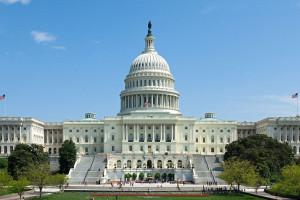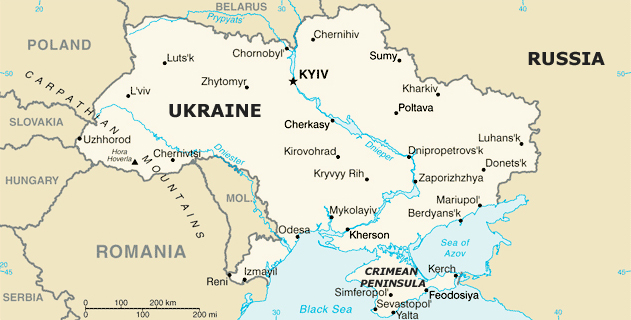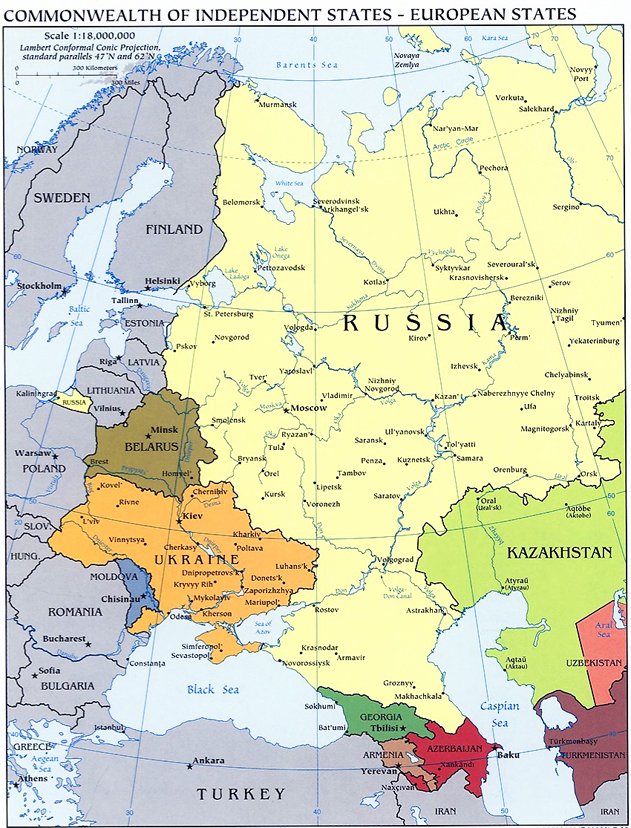TRANSCRIPT: Hearing on the United States, Ukraine and Russia; Testimony by Dr. Angela E. Stent

Senate Foreign Relations Committee
Hearing on the United States, Ukraine and Russia.
May 6, 2014
Testimony by Dr. Angela E. Stent
Director, Center for Eurasian, Russian and East European Studies, Georgetown
School of Foreign Service.
Chairman Menendez, Ranking Member Corker, Members of the Committee:
Thank you for giving me this opportunity to testify before the Foreign Relations Committee at
this critical time. I will cover three topics: Russia’s goals in the Ukraine crisis, the current
situation in Ukraine and U.S. policy going forward.
Before turning to Russian goals, however, it is important to understand that the current Ukraine
crisis is the latest iteration of a problem that has bedeviled the U.S-Russian relationship since
the end of the Cold War-namely that Washington and Moscow have had a very different
understanding of what a productive relationship would look like because, am ong other reasons,
of their contrasting attitudes toward Russia’s neighborhood. Since the Soviet collapse, U.SRussian
relations have been on a rollercoaster, a cycle of political booms and busts, with
periods of high expectations followed by disappointments. There have been four resets since
1992. Each U.S. president has sought to find a more productive way of interacting with the
Kremlin, only to see his efforts end in disillusionment and mutual recriminations.
The resets foundered because of discord and conflict over the post-Cold War settlement.
Russia believes that it has a continuing right to a “sphere of privileged interests” in areas that
were historically dominated by or allied with Russia. The United States does not accept that.
During the Clinton administration, Russia deeply resented NATO’s 1999 bombing of Serbia, a
traditional ally, in support of Kosovo, something that Vladimir Putin invoked in his March 18,
201 4 speech announcing the annexation of Crimea. During the Bush administration, U.S.
support for Georgia’s and Ukraine’s ambitions to move closer to NATO and the European Union
provoked the Kremlin’s ire, ending in the rubble of the 2008 Russo-Georgia war and the
dismembering of Georgia’s territorial integrity. During the Obama administration, U.S. support
for the Maidan protestors and the interim government in Kyiv that led to the ouster of Viktor
Yanukovych has similarly incensed the Kremlin. Simply put, Russia wants to ensure that neither
NATO nor the European Union move into the post-Soviet space and that these countries
maintain close political and economic ties with Moscow and remain within Russia’s orbit.
Russia’s Goals in the Ukraine Crisis
Since Crimea’s annexation, we are living in a new geopolitical reality. Russia has upended the
agreements and understanding within the international community that ended the Cold War.
Russia’s actions in Ukraine-the annexation of Crimea and the active support of separatists in
Eastern Ukraine that are systematically destabilizing the country-are part of a broader Russian
challenge to the post Cold War settlement. Because of the unprecedented way in which the
USSR disintegrated in December 1991, many Russians refuse to believe that the Soviet Union
perished and died of its own failures and self-inflicted wounds but rather that the United States
deliberately engineered its demise, as Mr. Putin has recently argued. The Kremlin has served
notice that it has the right to review and reconsider the arrangements that have governed the
post-Soviet space since 1992.
Moreover, most Russians have never viewed Ukrainians as a separate nation and Ukraine as a
separate country. Indeed, at the 2008 NATO summit in Bucharest, Vladimir Putin said, “Ukraine
is not even a country. Part of its territory is in Eastern Eur ope and the greater part was given to
us.” In his March 18, 2014 speech announcing the annexation of Crimea and in subsequent
pronouncements, President Putin has questioned legitimacy of the actions that led to the 1991
agreement dissolving the USSR. ii With his annexation of Crimea, he tore up the 1994 Budapest
Memorandum guaranteeing Ukraine’s territorial integrity in exchange for Ukraine’s renouncing
its nuclear weapons. Setting off wider alarm bells, he has also reserved the right for Russia to
protect what he calls “compatriots” –fellow Russians and Russian-speakers in Ukraine and
other parts of the former Soviet Union who feel threatened. The claim to have the right to
protect one’s fellow ethnics living in other countries with force, if necessary, evokes disturbing
historical reverberations. Russia’s actions also challenge the non-proliferation regime by
nullifying the 1994 Budapest Memorandum. Even during the Soviet era, ther e were rules of the
game that both sides observed. Now no-one knows what those rules are any more.
Ukraine is also a domestic issue for President Putin. Ten years ago there was a popular uprising
in Kyiv – the Orange Revolution — to protest the results of an election that Viktor Yanukovych-
the recently ousted President-claimed he had won, but whose results many Ukrainians
believed had been falsified. After a rerun of the election in December 2004, Mr. Yanukovych’s
rival, Viktor Yushchenko, won the presidency. The Kremlin was convinced that the United
States had engineered the Orange Revolution in order to bring its candidate to power. During
Ukraine’s Orange Revolution, the question in the Kremlin was-if a popular uprising can depose
an unpopular government in Kyiv, could the same thing happen in Moscow? Although today
Mr. Putin’s popularity rates have soared above 80% after the Crimean annexation, the 2014
Ukrainian revo lution raises once again the same threat about the example of opposition groups
in a post-Soviet state overthrowing the ruling government.
It is important to remember that Ukraine and Russia are closely integrated economically. The
industrial eastern part of Ukraine provides much of the hardware for Russia’s military-industrial
complex and Russia’s orders for these goods provide employment for Ukrainians living in these
eastern regions. More than 50 percent of Ukraine’s total machinery exports go to Russia.
Moreover, when President Yanukovych was ousted, there was concern in Moscow that the new
Kyiv government might revisit the basing agreement for the Russian Black Sea fleet in Crimea.
Mr. Yanukovych extended the lease from 2017-when it was originally set to expire–to 2042,
but the Kremlin was concerned that this could be changed.
What are Russia’s goals in the Ukrainian crisis? In the short run, the Kremlin wants to
undermine the May 25 Ukrainian Presidential election by destabilizing eastern Ukraine and
challenging the legitimacy of the interim government in Kyiv and its election process. There is a
creeping civil war in eastern Ukraine, as groups of separatists seize municipal buildings and
declare that they will hold their own preemptive referendum about seceding from Ukraine on
May 11. In the longer run, Russia seeks a Ukraine with a loose federal structure that will
weaken the central government’s ability to impose its control over its eastern regions and
maximize Russian influence in the East. It also will insist on Ukraine declaring permanent
neutrality with no aspirations to join NATO or the European Union. Moscow’s goal is to cement
its “sphere of privileged interests” in Ukraine and other post-Soviet countries and to minimize
US or EU presence in its neighborhood. It wants to create a new set of relationships in the post-
Soviet space where Russia will dominate, including areas with significant Russian populations
such as the Transnistria separatist enclave in Moldova.
The Situation in Ukraine.
In 2008, a high-level transatlantic group undertook an assessment of Ukraine’s development
since 1992 and concluded “Ukraine still has a significant path to travel to complete its
transformation into a modern, democratic, European state”, citing the lack of transparency in
government structures as a major problem. There has been little improvement in the six years
since. iii In 2013, Transparency International ranked Ukraine 144 out of 175 countries in the
Corruption Perceptions index. iv How poorly Ukraine has done can be seen in a comparison with
Poland. In 1992, Ukraine and Poland had the same per capita GDP. Today, Poland’s per capita
GDP is three times larger than that of Ukraine.v In the past twenty-two years, Ukraine has not
succeeded in modernizing its political institutions, society and economy sufficiently to create a
strong, functioning state.
Ukraine’ development, like that of many other former Soviet republics, has been hampered by
the persistence of “the post-Soviet syndrome”, whereby the transition away from communism
has produced governments run by small groups of people where personal ties are much more
important than the institutions of government and the rule of law is weak and in which
corruption is endemic. The economy is controlled by a small elite with close ties to the political
leadership, and between them they control substantial assets . In Ukraine’s case, successive
governments since 1992 have failed to create the institutions of effective, modern government,
nor have they been able to forge a consensus on national identity in what remains a country
divided between East and West, as we have vividly witnessed in the past six months. Anger at
the cor ruption of the previous government produced the opposition in Kyiv that eventually
helped to topple President Yanukovych. “Anti-corruption” is also refrain that the pro-Russian
militias in the East have picked up.
The current interim government is in acute need of substantial economic assistance both to
avoid default and to help Ukraine deal with Russia’s recent raising of gas prices for Ukraine by
80 percent. It needs political support as it moves toward the imminent May 25 election and it
will need guidance as it contemplates constitutional reform. Ukraine’s constitution states that it
is a unitary state, but the current government apparently understands that the constitution has
not given enough power to Ukraine’s different regions, which seek more control over their local
administration. A new government could introduce reforms that achieve a better balance
between the center and the regions. Electing governors instead of ap pointing them from Kyiv
and devolving more budget authority to local administrations would be a start. As we have
seen in these past few weeks, Ukrainian military and law enforcement agencies have found it
extremely challenging to reimpose control over those areas and buildings seized by armed
separatists in the East and they will need to be reconstituted in a more effective way. Ukraine is
a highly inefficient user of energy, which increases its dependence on Russian gas. The next
government should, with the assistance of the EU and United States undertake a far-reaching
reform of its energy sector.
Above all, the next Ukrainian government will need to move decisively away from the post-
Soviet syndrome, introduce effective anti-corruption measures, promote and support the rule
of law and reform the political system. These are enormous challenges that Kyiv will face as it
confronts the instability and insecurity promoted b y the separatists and their supporters in the
East. The new government will have to deal with those forces that seek to keep Ukraine
permanently weak and in a state of near anarchy.
And realism is necessary about healing the ethnic divides. Historically around the world,
language is often a critical element in ethnic identity. About 17 percent of the population is
identified as “Russian” although a larger percentage of the population uses Russian as their
primary language.
U.S. Policy in the Ukraine Crisis.
It is in the U.S. national interest to support a strong, independent Ukraine with effective
institutions of modern governance that lives in peace with its neighbors, both East and West.
U.S. policy should continue to focus on three major objectives. The first is to give robust
support to Ukraine and help it recover from the assault on its sovereignty and economy during
the past few months. Financial assi stance from the U.S., the European Union and the
International Monetary Fund is essential, However, it must be carefully disbursed to ensure
that it is used to the greatest effect and does not disappear, as has previous assistance, into a
black hole of corruption. The United States should also provide training for law enforcement
agencies and, either bilaterally or through the NATO-Ukraine Commission, for the Ukrainian
armed forces. It should seek to ensure that the May 25 election is held and provide whatever
legal assistance the next government requests as it begins the process of constitutional reform.
We should also support Ukraine through advice on best practices in reforming its energy sector
to become less dependent on Russian gas supplies – and more efficient. Ukraine will need a
long-term commitment from the United States to ensure that it can survive this current crisis.
The second U.S. objective must be to reassure ou r NATO allies-especially the new members–
that, despite the challenge to the post Cold War Euro-Atlantic security order that Russian
actions pose, the alliance remains committed to the collective defense of all its members. The
policy of military and political reassurance through the presence of U.S. troops and aircraft in
the Baltic states and Poland is an essential element in this commitment. Hopefully this will also
prompt a broader debate among our NATO allies about raising their own defense spending. We
need to ensure that Article Five guarantees-that NATO will come to the defense of any
member state that comes under attack– remain credible.
The third U.S. objective must be to deter Russia from launching a military invasion of eastern
Ukraine and from further destabilizing Ukraine through supporting separatists who are
rendering Ukraine ungovernable. If Russia is pursuing the goal of the long-term destabilization
of Ukraine, then U.S. policy, like that of Europe, will have to make use of a full arsenal of
measures to deter Russia. In addition to punitive measures, however, the United States has to
leave open the possibility of a diplomatic solution. Crisis management is important. In the
deteriorating situation in Ukraine, it is possible that local groups could take actions that trigger
a more wide-ranging crisis.
Although it appears that the current sanctions have not changed Russian policies toward
Ukraine so far, they may have an impact on the domestic economic situation in Russia. The
question is how long can patriotic fervor be a substitute for economic well-being. Putin’s
compact with the Russian people is that, under his rule, their living standards have risen even if
their political freedoms have been curtailed. If this is no longer the case-as growth rates are
forecast to be negative this year-can he still maintain these popularity rates and at what point
does the Russian population become restive? From 2000-2008, Russian GDP rose by 7% a year,
largely due to rising oil prices. Since the financial crisis, they have fallen and were forecast to be
1.3% this year. Recently, the Russian Finance Minister forecast that Russia’s growth rates would
be zero or negative this year. vi The longer-term prospects for the Russian economy and society
are not favorable-if one looks at its declining birth rate and, health and mortality for youths
and adult men, its antiquated infrastructure and lack of modernization, its capital flight ($51
billion in the first three months of this year)and the brain drainvii viiiThese realities should not be
forgotten amidst what appear to be Putin’s huge surge in popularity.
Although most U.S. measures will be punitive, Russia is not going away and the United States
will have to continue to seek ways to end this crisis. It will also be i mportant to leave open
channels of communication that Russia could use were it to decide to back away from its
confrontational stance-especially once the sanctions have a more palpable effect. It will also
be important to explain to the American people why deterring Russia and supporting Ukraine is
a priority for the United States. Russia remains the other nuclear superpower, with thousands
of nuclear warheads and is also endowed with critical natural resources, such as the titanium
used in building airplanes. Moreover, we should not jettison activities that are strongly in
America’s own national interest. We share with Russia an interest in non-proliferation of
weapons of mass destruction and continue to negotiate over Iran’s nuclear program.
The United States cannot bolster Ukraine and reduce the crisis situation by itself. The
immediate challenge is to work as closely as possible with our European allies to present a
uni ted front both in assisting Ukraine and in deterring Russia from further destabilizing actions.
In the longer run, the United States will have to work with Europe to restore the sense of
stability and predictability in Europe that has existed as we have moved beyond the Cold War.
Another immediate goal should be to work with Europe to decrease its dependence on Russian
energy supplies, thereby reducing its vulnerability to Russian pressure.
But there is also an important political-military dimension. Russia has broken the rules of the
game by annexing territory from another country and supporting groups that are challenging its
sovereignty. The goal going forward is to maintain what is left of Ukraine’s territorial integrity
and to prevent further annexations of territory in the post-Soviet space and re-commit to the
territorial integrity of Russia’s neighbors. Russia is a multi-ethnic and multi-confessional state
which has alre ady fought two wars in Chechnya in the name of preserving its own territorial
integrity, and it should be in Moscow’s interest to minimize the possibility of future separatist
movements in its neighborhood. New rules of the game are necessary, and this will require a
U.S. recommitment to Europe, even as we look toward Asia and grapple with the other global
challenges we face.


